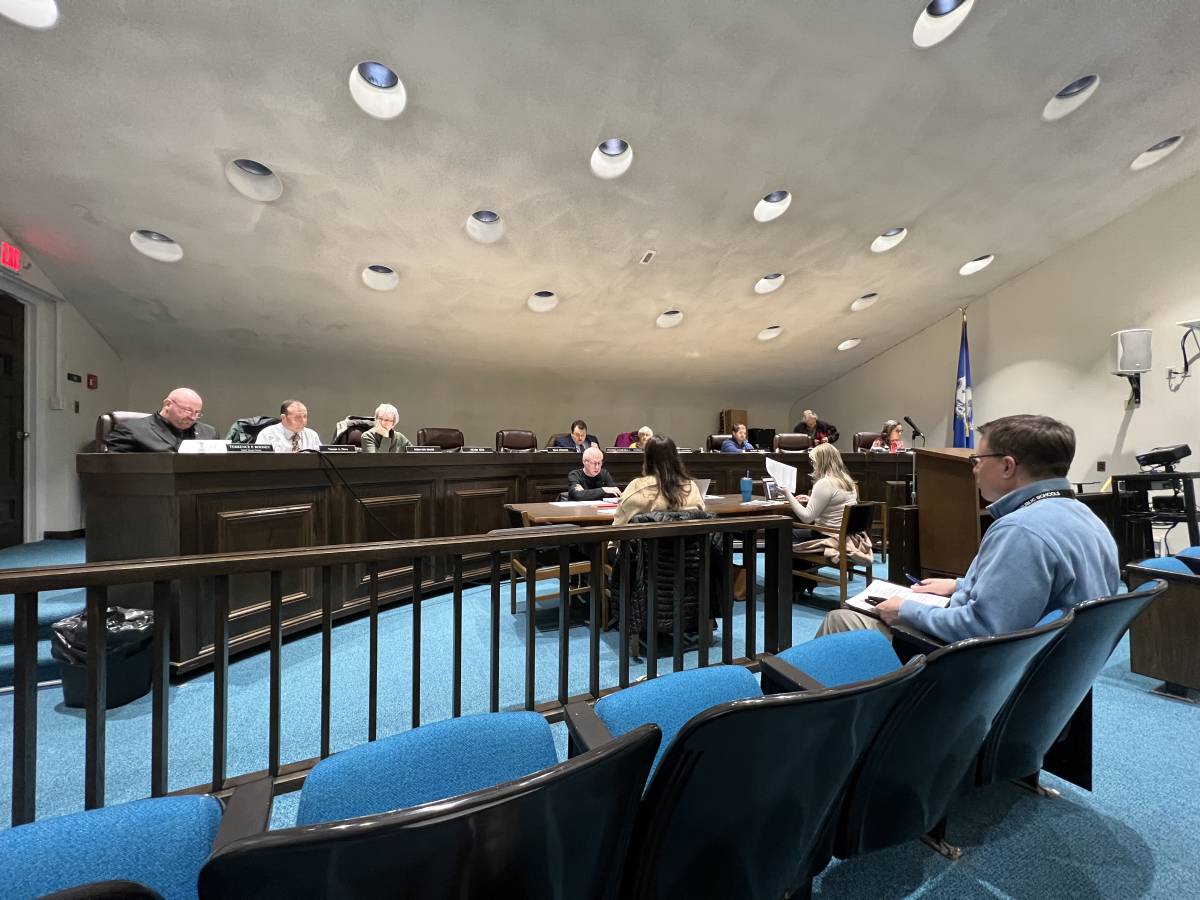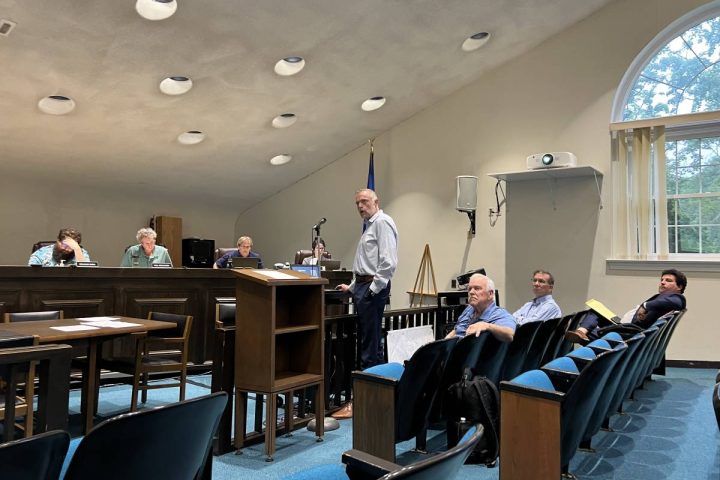MONROE, CT — Board of Finance Chairman Michael Manjos expects the town to have a challenging budget year amid the ending of grants, increases in school children, contractual obligations and a difficult insurance market.
However, he also touts Monroe’s strong fund balance, high investment revenue, growing grand list and declining debt, which he says could allow the town to take on more capital projects needed to maintain its infrastructure.
Manjos shared his thoughts during a joint meeting between the Board of Finance and the Town Council Tuesday night.
The evening also included a hearing on the $103.67 million town budget proposal with a projected tax increase of just over 2 percent. But nobody from the public shared their opinions or asked questions.
The Town Council will review the $31,437,169 municipal portion of the budget tonight (Wednesday) and is expected to vote on it during its regular meeting on March 11. Then the Board of Finance will review the entire budget, which also includes $71,337,659 for Monroe’s public schools.
Voters will decide on a final version of the town budget during a referendum on May 7.
On Tuesday, Manjos noted how First Selectman Terry Rooney wants to use $2,550,000 of the undesignated general fund balance to offset taxes.
“When it arrives to the Board of Finance, we’ll review the exact amounts, but conceptually I believe we’re on the right path,” Manjos said of using the fund balance.
He reiterated his belief that the first selectman and Town Council should make decisions on staffing, salaries, prioritizing capital projects and daily operations, while the Board of Finance figures out the best way to pay for big ticket items and what taxpayers can afford.
During the meeting, Town Councilman Jason Maur said he wants to look into why the town consistently has open staff positions and whether it’s a product of not needing the positions or of salaries being too low.
Maur also expressed concern that the town may be over-collecting taxes on the backs of taxpayers, in light of the undesignated fund balance receiving unspent budget funds and the Board of Education routinely returning money to the town every year.
He also said the undesignated fund balance should be used as a rainy day fund for unforeseen expenses, rather than operating expenses.
Revenue opportunities
“We’ve done a nice job growing the grand list, which again allows us to offset significant increases in education costs,” Manjos said.
He said the teachers’ contract, which was settled in arbitration, carries a significant cost increase. During negotiations, Manjos said he made his concerns clear that Monroe may have higher paid teachers, but end up with fewer of them.
“That’s a risk the union was willing to accept,” he said.
“The good news is we have some advantages on the revenue side, but the cost side is very high this year,” Manjos said. “We are at a very low point in debt. We’ve got a little over $4.3 million dropping off this year. We’ve committed to some projects, but I still believe we can tack on some capital projects, even though interest rates are considerably higher than we’ve gotten used to over the past few years.”
Manjos said it is important for the town to continue to do projects on an ongoing basis so it does not fall behind on maintenance.
He said he wants the first selectman and Town Council to take a hard look at prioritizing capital projects, particularly the long term plan for maintaining town roads. Without long term planning, Manjos said things could come back to bite them down the road.
Among the ways of funding capital projects, he said the town could use some of its fund balance, in addition to the regular operating budget and grants.
“Our fund balance is at a very high level,” he said. “We’re proposing to use a decent portion of it, but we’re still at the higher end of our range, so we do have some flexibility there.”
Manjos said the Board of Finance would be happy to join the Town Council in a meeting on capital projects if the Council thinks it’s necessary.
“In the last few years we’ve kind of been in that five to six million range,” he said of bonding for capital projects. “I’m comfortable with that. Now that our debt is considerably lower, it’s just balancing the number of projects with the rates that may come up.”
Town Council Chairman Jonathan Formichella asked for confirmation that the $5 million to $6 million is not a hard and fast number. Manjos said it is not, though he is comfortable with that amount.
Manjos said the Board of Finance will spend more time exploring opportunities on the revenue side of the budget to find ways to offset more expenses.
Education funding
Steve Kirsch, a finance board member, shared his own budget priorities during the meeting.
Kirsch asked for the restoration of $1,187,000 the first selectman cut from the rate of increase in the Board of Education budget, absent the anticipated $500,000 in projected health insurance savings.
“I think there are ways to use additional revenue,” Kirsch said, adding officials should understand the bulk of the school board’s increase is contractual in nature.
He proposed increasing the anticipated tax collection rate to either 98.9 or 99 percent. “Historically we continue to exceed the collection rate and I think outside factors, such as recession, have declined since we discussed this during the budget process last year.”
Kirsch also asked for increased funding for roads due to Monroe’s capacity to bond and available money in the general fund.
“Roads that we did back in 2010 and 2014 are now showing failing PCI ratings,” he said, using Wheeler Road as an example.
Kirsch said he wants to insure that the town is using the undesignated fund balance for projects rather than operating budget items.
He also called for a better understanding of municipal staffing levels and “continued over budgeting in many salary accounts.”
Kirsch said the town needs to be more accurate in projecting its investment income and to “take a bit more risk” in its projections to reduce the amount it needs to raise taxes.
All respectful comments with the commenter’s first and last name are welcome.






